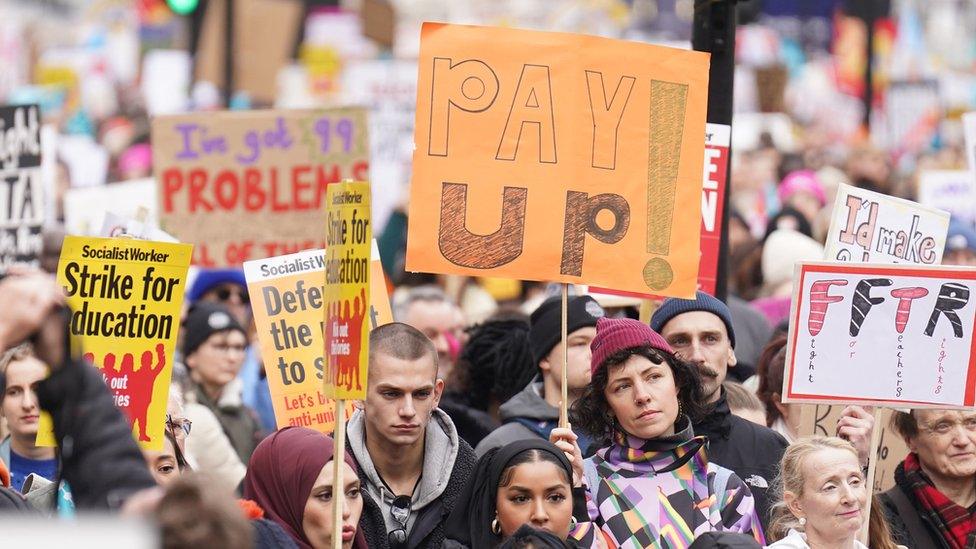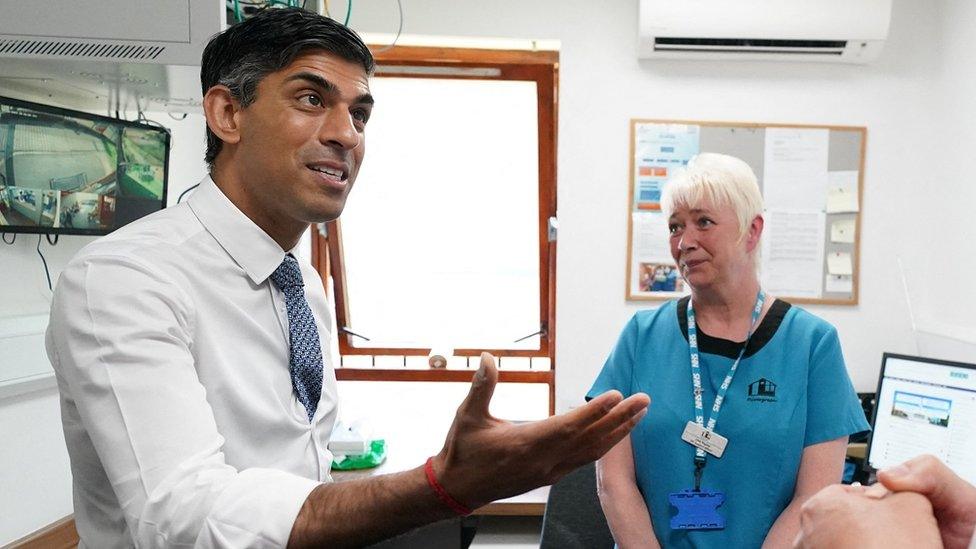Public sector pay rises should be affordable - PM
- Published

Hundreds of thousands of public sector workers have been taking part in strikes over pay
Rishi Sunak has said any pay offer to public sector workers had to be "fair, affordable and responsible" in order to control rising prices.
The PM said it would be "short-sighted" to do something now that made inflation worse in the longer term.
Tackling inflation meant taking "difficult decisions" that would benefit the country, he added.
It comes as he reportedly faces pressure from ministers to accept the recommendations of pay review bodies.
The Times, external reported that five Cabinet ministers were lobbying the prime minister to accept pay recommendations believed to centre on around 6%.
Speaking to reporters in Selby, Yorkshire, on Saturday, Mr Sunak said "no decisions have been made" on whether to abide by the proposals.
"It would be incredibly short-sighted of the government to do something that might sound great today but ultimately just made the inflation problem worse for everybody in the long run," he said.
"So that's what we'll be guided by. We want to be fair, we want things that are affordable and responsible."
He said the government was "working incredibly hard, night and day, to bring inflation down", but warned it required "difficult decisions".
"Ultimately if we don't do that it will just make the situation worse and it will last for longer, that's not going to do anyone any good," Mr Sunak said.
"I wouldn't be the right kind of prime minister if I took the easy course. I'm going to do the right long-term thing for the country and that means bringing inflation down."
Hundreds of thousands of workers have been taking part in strikes over pay, including teachers, junior doctors, nurses, civil servants and rail workers.
Some agreements have been reached, including a pay settlement for more than a million NHS staff in England.
Almost half of public sector workers are covered by pay review bodies, including police and prison officers, the armed forces, doctors, dentists and teachers.
The pay review bodies are made up of economists and experts on human resources, with experience in both the public and private sector and are appointed by the relevant government department.
Their recommendations are not legally binding, meaning the government can choose to reject or partially ignore the advice, but it is usually accepted.
Mr Sunak has pledged to halve inflation this year to about 5%, as part of his top five priorities since becoming prime minister.
The rate at which prices are rising remained unchanged at 8.7% in May, despite predictions it would fall.
Related topics
- Published26 June 2023

- Published1 August 2023
